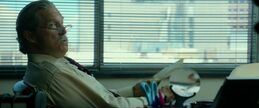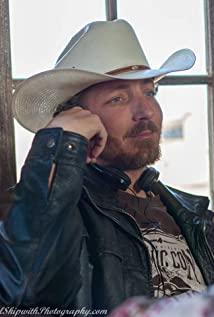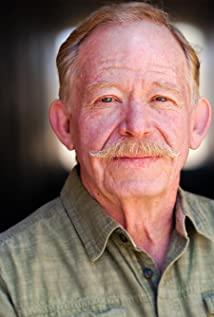But "Passing Through Fire" is far more than that. It is not a simple bank robber movie, and the characters are not bad guys and upright sheriffs who discriminate against blacks. Instead, they are rearranged western scenes with a bit of bitter black humor. . The core of the movie is that the two brothers want to reclaim their land and ancestral properties, but instead portray the looted bank into a cold-blooded blackmail villain.
The story of the movie is very simple. A pair of brothers robbed a bank along the road, and a pair of Texas Mounted police chased them all the way. Similar plots have been performed in countless western films, but behind this seemingly common plot, there are very moving stories hidden.
It turned out that the brothers and sisters had just been released after ten years in prison. The brother had divorced and owed his ex-wife alimony, and their mother had just passed away. What's more unfortunate is that their mother stupidly took the land and real estate as a "reverse mortgage" without knowing the true rights and obligations. If they were unable to repay the loan, the bank had the right to check their real estate.
Coincidentally, they detected a large amount of oil underground in the farm, and this oil was enough to change the fate of them and their children. Therefore, they decided to take the risk and rob the bank to repay the loan. The younger brother in the movie once said: Poverty is passed on from generation to generation in his family like a genetic disease, and he wants to keep his children away from this disease. From then on, he was poor, and the child was rich; he was a criminal, and the child was innocent.
Although the story of the movie is simple, the characters created are all first-rate, whether it is a supporting role or a protagonist. The four main characters in the movie, two brothers and two mounted police, all have a bright image. These two groups of partners are swearing to be loyal to each other, and despite their different personalities, they are all working hard for the same goal.
The first is the criminal brother played by Ben Foster. He is bad and mad, impulsive and unruly, giving people a feeling of fear, but deep in his heart he still hides his love for his brother. The most powerful thing about this role is that he knows the ending and cost of robbing the bank from beginning to end, and all his actions carry the tragic atmosphere of a dead-end hero. This makes people feel distressed even if they can't fall in love with this character.
Next is the younger brother played by Chris Pine. His temperament and attitude are more gentle than his brother, but his eyes have unconcealable alertness and perseverance. He is kind in nature but with the taste of "I am not a vegetarian". As the planner of the whole incident, he was methodical and determined to sacrifice everything.
The brothers are like Cain and Abel in the Bible. They feel a bit of a robbery thriller, but they can also make people feel that the family is fighting for each other. This is also the unique feature of the movie. As the director himself said: As a director, I have always disliked stories where moral meaning is either black or white, so my film uses what I call "atonement crimes." ", let good people do bad things for good reasons.
Their opposite is the pair of Texas Mounted Police. One is a veteran police officer who is about to retire. The reason for investigating all cases is the fear of boring life after retirement; the other is a mixture of Native Indians and Mexicans. Taciturn, enduring the jokes of his partner with "racial discrimination".
What's even more powerful is that in this movie, even the small supporting roles are portrayed with distinctive personalities. The waitress who flirted with her younger brother in the restaurant showed her dilemma in life in two scenes, her determination and bravery, she was neither arrogant nor humble; and the old waiter who ordered the two mounted police was just a line. It is impressive; there are also dull-eyed bank tellers and bank customers who counterattack with guns, making people laugh.
Not only is the role modeling impressive, but the uninhabited Texas wasteland in the movie also provides ample reasons for the existence of these characters. There is a scene in the movie. The plain fire makes the horses run away. The passing policemen just sighed and helpless, and the cowboys can only watch the horses go away. Because this land is too vast, and personnel are too depressed.
In this land, not only nature is ruthless, but man himself is ruthless. This is also the theme that the film has constantly emphasized, the generational seizure of this land. The white people first snatched the land and property from the natives, and the bank "snatched everything" from the white people, over and over again, never stopping. The disadvantaged groups formed under these robbings can hardly stand up forever. In the movie, the only way the two brothers came up with was to rob the bank.
In Texas, a land where everyone is a cowboy, the ancestors used their guns to forge ahead and grab land and wealth from the aboriginals; now banks and big capitalists use various financial means, The wealth was "stolen" from them. Everything is like a causal cycle, retribution is unhappy.
However, the film did not directly focus on how the bank blackmailed the people, or even directly told how the mothers of the two brothers mortgaged the land. All of this is shown through the dialogue between the various characters in the film. In addition, the camera quickly swept through, and the roadside was full of billboards of "micro-loans" and "land for sale". It seems that everything is said without saying.
Perhaps the American dream has already disappeared in essence, but many people living in the beautiful vision of the financial crisis in 2008 lost their houses, pensions and all kinds of dignity before they truly woke up and began to face the American dream. Perhaps the American dream no longer exists. Reality. This is exactly why the new US President Trump’s slogan: Make America Great Again touches people’s hearts.
At the end of the movie, the scorching sun is shining brightly, and the camera slowly droops until it gets close to the ground. The front of the camera is full of withered grass, which meaningfully implies that all the dust will return to the dust, the soil will return to the earth, leaving the feeling of helplessness in the hearts of the audience.
[img=13:C] Screenshot of "Going Through Water and Fire", the last shot
[/img]
and one more sentence at the end. The photography and soundtrack of this film are excellent, and it is worth watching repeatedly and tasting it carefully.
This article was first published in the Barcelona Movie APP, article: Yu Xiaodao.
View more about Hell or High Water reviews











